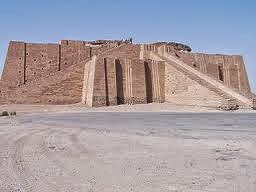The Real Noah, Part 4, Why the Ark Story, and a Short Bio of Robert MacAndrew Best

What was the Hebrew author trying to accomplish? Having looked at the Genesis account and compared it to the Ziusudra Epic, what are we to do with it who live by the Bible and acknowledge its inspiration? I suggest we try to walk in the shoes of the earthly author and try to understand what his motivations may have been. He lived in the era of the kings of Israel. No, Moses did not write the book of Genesis. The phrase, …such and such happened when there were no kings in Israel is oft repeated. That is a clue that the book was written when there were kings in Israel. He lived in a polytheistic world with goddesses, ghosts, snakes, sacred gardens, and sacred trees [beneath which blasphemy and unholy arts were practiced]. Our author knew beyond all shadow of a doubt that participating in those customs brought spiritual death to the worshiper. Many of his own people followed those very gods. The Canaanites legends of Baal and the monstrous world of Mesopotamian deities were well-kn...

